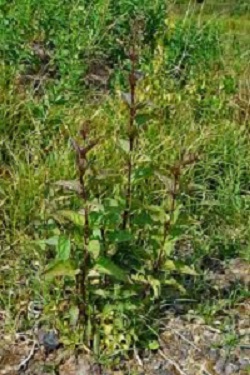The seeds of domesticated plants could offer clues as to why cultivated crops are larger than their wild cousins, researchers have suggested according to BBC.
Increased size is common among domesticated plants but the reason for increased growth is little understood.
The increase in the biomass is of interest to plant breeders as it could affect productivity, such as reducing grain yields, they added.
A team of researchers investigated the traits that were responsible for the difference in size.
Comparing and contrasting various factors, such as biomass, leaf size and photosynthesis rates, the scientists were able to identify a number of characteristics that differed between domesticated plants and wild varieties.
They reported that domestication generally increased the above-ground biomass. The added that the domesticated specimens invested less in leaves and more in stems than their wild counterparts.
However, photosynthesis rates remained similar between the two strains, raising questions about how the domesticated plants were able to produce larger leaves if they were no more efficient at turning energy from the Sun into sugars.
“What we found was that, primarily, it looked as if physiology had more of a role than other aspects,” explained co-author Ruben Milla.
“In plants, the initial size of the organism is the size of the seed, which are larger for domesticated plants. This finding, along with other research that has been published, suggests the increase in size of plants has little to do with physiology but has more to do with the size of the seeds.”
In another paper, a team also concluded that increased yields among domesticated crops originating, which is considered to be the birthplace of modern agriculture, was a result of an increase of the plants’ seed size.
Dr Milla explained why the difference in size between domesticated plants and their wild relatives was of interest to researchers.
“It’s relevant for agriculture in general because the fact that plants become larger has some drawbacks on the plant’s production,” he said.
“Larger plants tend to spend more biomass on their stems etc, and this affects its productivity in terms of grain yield,
N.H.Kh

